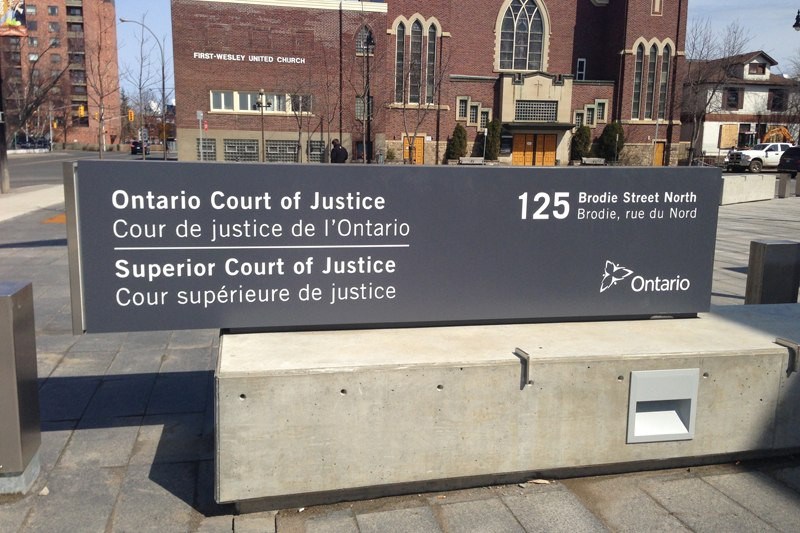THUNDER BAY - A man who has been convicted of manslaughter and was a leading participant in a hostage-taking at the Kenora District Jail has been deemed a dangerous offender and will remain in custody for an indeterminate period of time.
Patrick Kanate, 32, originally of Weagamow First Nation, appeared before Justice Danial Newton in a Thunder Bay Courtroom on Thursday for a sentencing hearing.
In April 2021, Kanate pleaded guilty to one count of hostage-taking, three counts of assaulting a peace officer with a weapon, disarming a peace officer, and uttering threats.
The charges relate to an incident at the Kenora District Jail in September 2018 when Kanate and eight other inmates assaulted a corrections officer and took him hostage inside the facility for more than three hours.
“It is agreed the hostage taking was pre-planned and Kanate and three others were principal in the hostage taking,” Newton said.
The corrections officer sustained minor injuries but continues to experience ongoing mental trauma relating to the incident.
As part of sentencing submissions following the guilty pleas, Crown attorney Peter Keen introduced an application to designate Kanate as a dangerous offender, citing his numerous convictions for violent offences both in and out of custody.
An individual can be designated a dangerous offender if it is found they display repetitive violent behaviour and a lack of remorse, thereby posing potential future risk to the public.
Kanate has previously been involved with gangs and has more than 10 convictions for violent behaviour.
The most serious conviction includes a guilty plea to manslaughter for the 2010 death of his 25-year-old cousin Keegan Williams, for which he was sentenced to seven years.
During one stint in custody between 2016 and 2017, Kanate was charged with 31 institutional violations, including carrying a weapon dangerous to the public.
“The Crown submits the substantial number of violent actions committed both in and out of custody that [Kanate] is often uncontrollable even in a controlled environment,” Newton said.
“The Crown argued that in last 12 years Kanate has been released from custody numerous times and longest without breaching parole is four months.”
Defense counsel Kevin Matthews was seeking a determinant sentence of between four to six years to be followed by a long-term supervision order for 10 years.
Matthews argued an indeterminant sentence was unduly harsh when considering Kanate’s Gladue principals.
The Gladue report prepared previously indicated that Kanate was exposed to violence and substance abuse at an early age and his family and community have struggled with the ongoing impact of the Residential School system.
A psychiatric assessment was also ordered as part of the dangerous offender motion. According to the report, Kanate has several risk factors to reoffend, including alcohol abuse and a pattern of persistent violent behaviour.
The report also concluded that Kanate does not lack insight into his behaviour but rather lacks motivation to change.
“I agree with [the psychiatric assessment] that [Kanate] is high-risk to reoffend. Past attempts at rehabilitation have not been successful,” Newton said.
“I have determined a determinate sentence will not adequately protect the public. I conclude reluctantly they the only sentence that will protect the public is an indeterminate sentence.”
Kanate will remain in a federal penitentiary for an indeterminate period of time. Those designated a dangerous offender can apply for parole after a period of seven years.
Kanate is also required to submit a DNA sample and is subject to a lifetime weapons prohibition.
